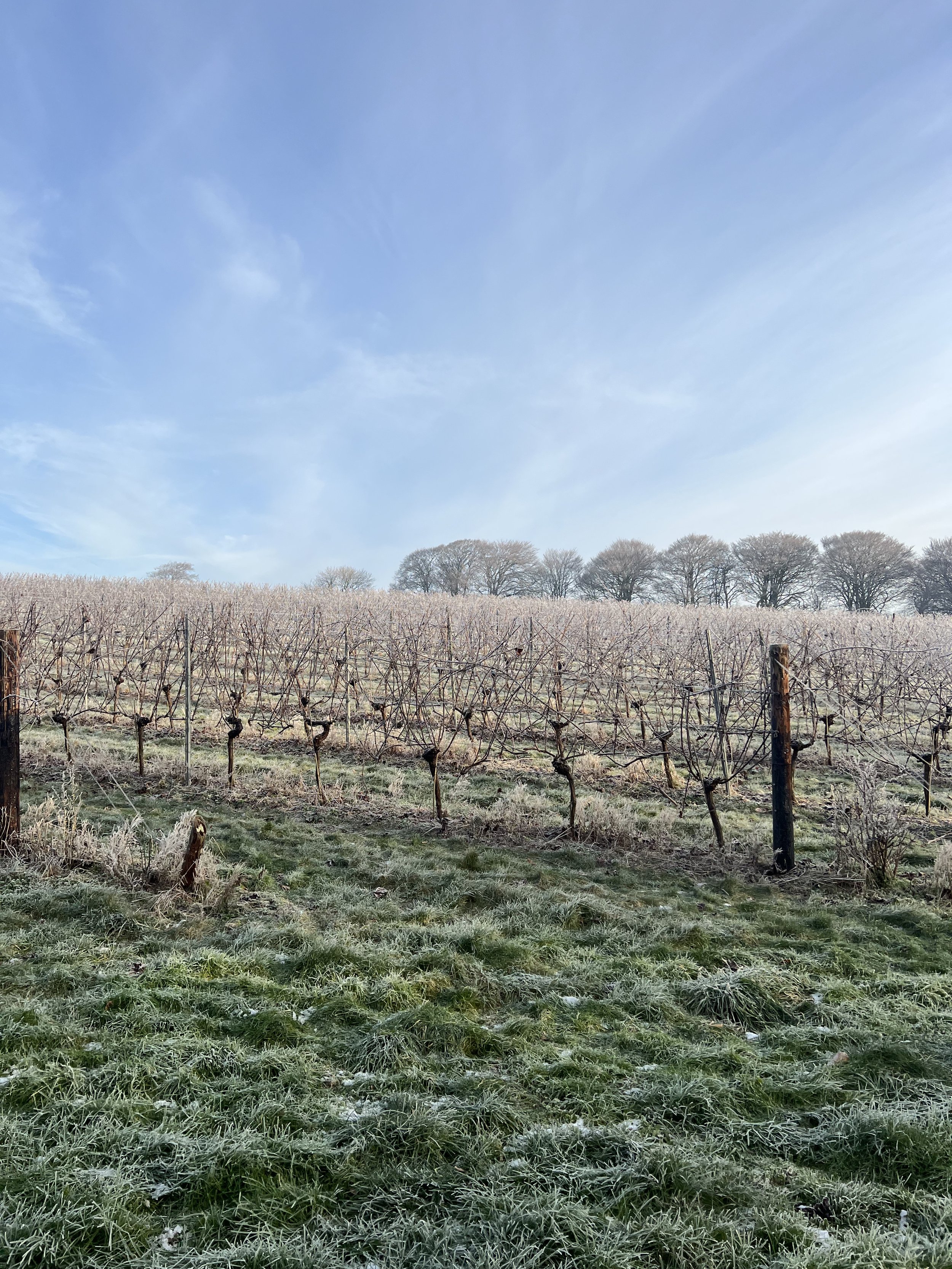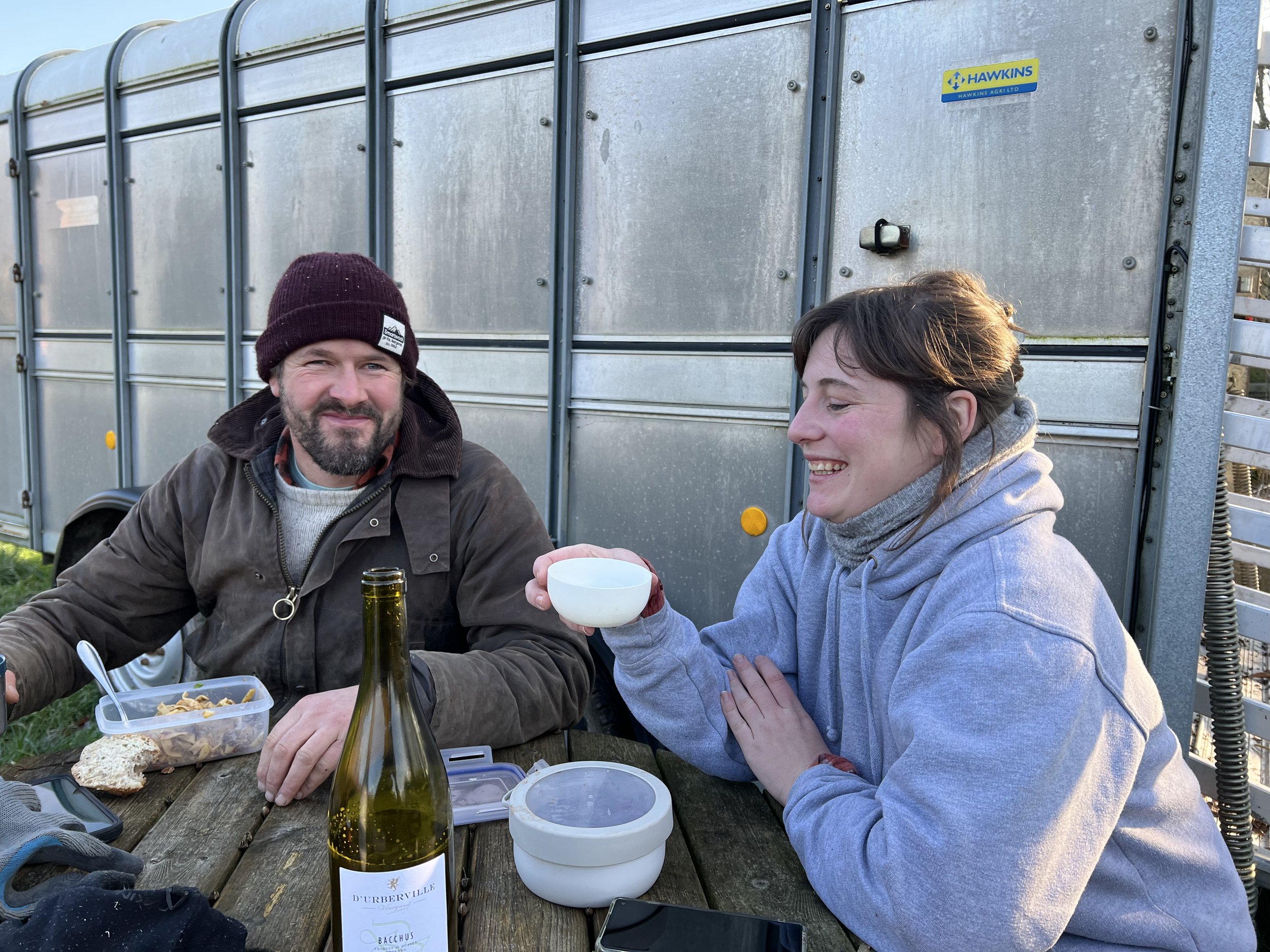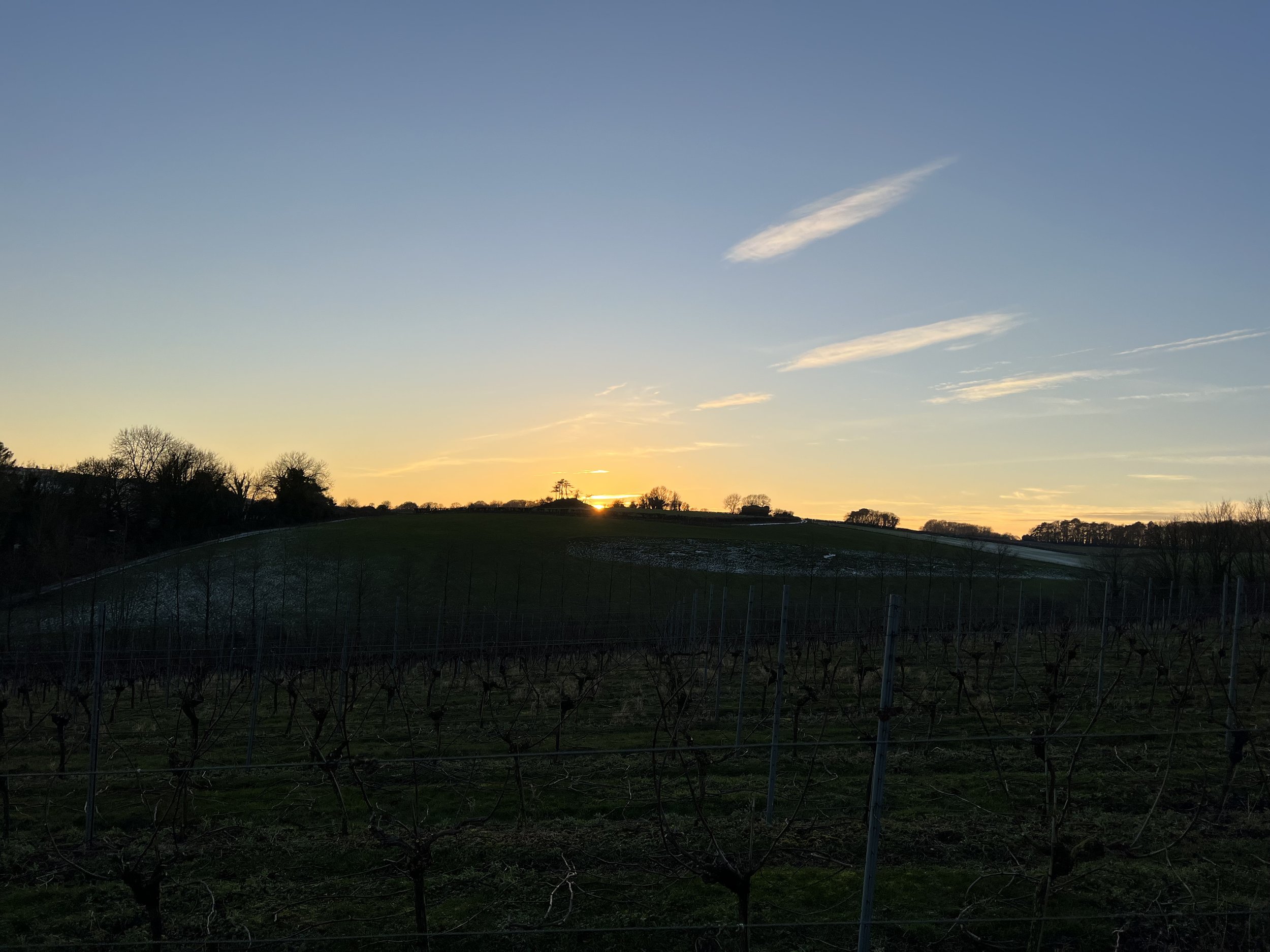Pruning as a metaphor
I spent much of last week in Dorset. I was reminding myself of how and why we prune vines.
A uniquely thoughtful practice that I found surprisingly soothing.
Sober contemplation, a paring back of previous year’s growth and excess to leave the vine ready to return to fruitfulness in the new year; but more than that, there’s an element of benevolent guidance, if done properly you’re helping the vine return as a better version of itself, choosing the best canes, removing those that didn’t thrive or those that prospered in the wrong places. It’s a practice that’s heavy with metaphor. Especially so, if one is also in a period of change.
I hadn’t remembered pruning being quite as mindful as I found it. Each vine presents as part puzzle, part history, part possibility. You take a moment to look at where it has grown, to look for the parts that want to be left but trimmed, and then neatly remove the growth that needs to be removed. It’s as simple as that.
Add in the somewhat solitary nature of pruning and it turns out it’s a fabulous time for ordering thoughts and ideas.
To add some context; I was in Dorset starting the second phase of the Some Mondays wine project. Having successfully managed to get two wines into barrel last year on the back of minimal planning (mostly conducted over a couple of long lunches), I had found myself in a position where my principles and interests started to make themselves heard over the daily clamour and noise of my brain.
I had asked myself the question of what I wanted to do with a wine making project; was it a way to play with different styles of wine that I like, was it a way to ask slightly subtler questions about how best to express what grapes grown in vineyards I have access to can present in a glass.
It didn’t take me long to conclude that, just as most of the wines I love come from winemakers with real connections to the vineyards from which their grapes come, I too needed to have a meaningful connection with mine.
Obviously Duncan McNeil wasn’t going to take me on as a partner in his brilliant work in Essex. However, Colin in Dorset would be only too willing to let me come and lend a hand at D’Urberville; and so it was that I was at Langham last week, where in addition to getting my first taste of my rosé de saignee base wines from barrel, I was also getting a crash course refresher in pruning.
Fast forward to the start of this week and I was helping Rob and Olivia from Castlewood and their team of Bulgarian and Albanian labourers prune D’Urberville. I can’t express quite how good it felt leaving on Tuesday. The pruning and pulling out had been finished, but more than that, I had spent two long days getting to know the angle of the hill and the feeling of the sun on its southerly exposure.
I’m hoping it’s just the start of what will become a meaningful relationship with this little spot of Dorset.



